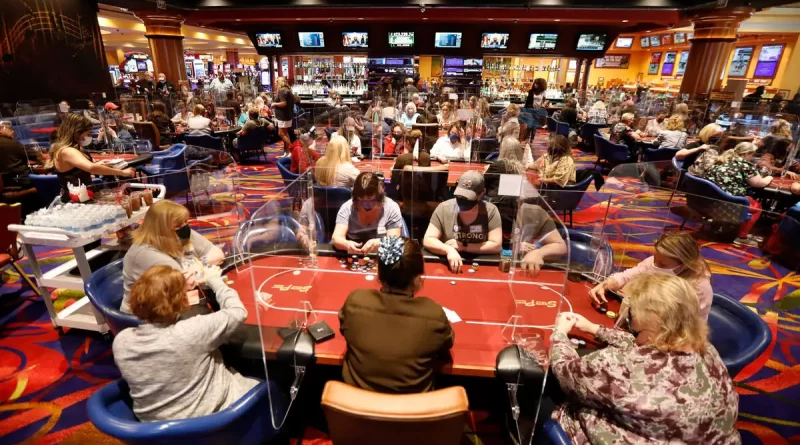How to Prepare and Succeed in Poker Tournaments
While poker tournaments can be gripping and exciting events, they are also often long and tiring ones, and the best players they attract tend to be knocked out long before making a return; which means that success requires commitment, patience and dedication from all involved.
Prior to the start of your tournament, have printed copies of the rules, blind structure and schedule, buy-in amounts, starting chips amounts and rebuy amounts available for the players and urged them to read them.
Warm Up
Having some sort of warm-up before you enter the tournament, to prime your brain for the best possible poker session, is an excellent strategy. Some recreational players simply take a few hands to get in the zone, thinking they can jump right in. Others might not show up at all, not bothering to build a pregame routine on account of fears that they’ll perform worse if they spend too much time relaxing. However, more and more successful poker players who compete or watch online know the value of pregame routines, and are working on how they can benefit them in the long run.
Pregame prep starts by removing distractions. Turn off social media. Put away the phone. In fact, keep all other noise and other distractions out of the room.
And you must understand your strategy at each stage. If the blinds increase, you have to play tight. But as soon as blinds increase, go loose. Take some risk! Because if you bubble off and don’t get paid – it’s nearly so bad. But once you’re paid, you’ve filtered through all the crap; the short stacks, the loose players will go and play their chipshow. So now you have a position! Now you can be a bully! But you have to know all these things. You must try to get yourself in a position to get to the final table. And if you reach the final table, you should not play my style. Because you don’t have to win the tournament, you only have to win the tournament. So if it goes to the money, you should play tight like that guy. If you are first player in, chip leader. All your opponents are basically short, so you cannot be loose and prevent them from accumulating chips. So you play tight, and only play really good hands that give you a good chance to double up.
Mental Preparation
Similarly, almost as important as the physical preparation for the game of poker is the mental preparation to begin a tournament. A tournament is a lengthy large-scale game of poker in which players are required to pay attention to the small details at every stage of the game, reading situations correctly and evaluating every choice they make. Inevitably, players will err at one point or another; nevertheless, the value of some of those erroneous decisions could be huge, and certainly valuable enough for someone not to make the final table (which is awarded to the top nine players).
It will help you remove concerns and issues that impair your mental condition and allow you to play well. You don’t want family turmoil, job pressures and other issues to cloud your judgment and have an undue effect on your decisions. In order to play well and reach your optimal performance, it is beneficial to be rid of those doubts or outside influences before a tournament.
Time Away from the Table
Too many players fail to prepare sufficiently for tournaments, arriving at big tournaments starved of crucial mental and physical nourishment, and making bad decisions that bleed chips – or, even worse, could lead to busting out of the event!
In cash game poker, what you decide to do is driven by probability, but so much less so than in tournament play that you could, without any problem at all, be a world-class tournament player who didn’t really have any sense of tournament strategy; you could do fine by understanding how to play the ‘correct optimised’ hand-by-hand, or street-by-street, poker. If you wanted to do well at cash game play, you might even do worse by trying to play every hand in the spirit of a tournament hand. In contrast, it’s inconceivable that you could be a successful tournament player without truly understanding tournament range theory.
Listen to podcasts or view videos on multi-table tourney strategy while prepping for your poker tournament. These will aid you in your absorption of tournament game dynamics and the cumulative reinforcement of your poker disciplines across the board. Snacks and water. Be sure to have access to healthful food and hydration products on the day.
Strategy
And players in a cash game have different dynamics than a poker tournament where, for instance, the shallower stack sizes make for a different kind of game and demand different strategies. Good tournament players know how to pivots to account for these levels of play.
Moreover, among winning players, memorising optimal push/fold charts becomes a habit, so late when their stack has been shortened, which allows them to make optimal decisions when it’s time to decide on a push or a fold. They also tend to include more suited connectors and small pairs in their opening range, in order to exploit set-mining strategies when playing mid and late stages of a tournament.
Team Instructors from LearnWPT — headed up by Team Learn members and 3-time WPT Champion Brian Altman and pre-eminent Mental Game Coach Jared Tendler, and featuring Andrew ‘LuckyChewy’ Lichtenberger, Nick Binger and 2-time WSOP bracelet winner Vanessa Selbst — offer tools and insights to keep you on track to reach the final table, the holy grail of tournament competition.

